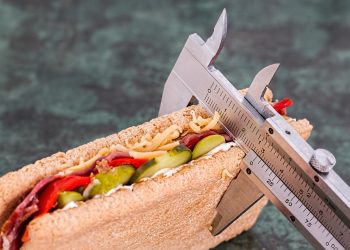The Mediterranean diet has long been celebrated for its health benefits, including promoting heart health, reducing inflammation, and supporting longevity. In recent years, it has also gained attention as an effective and sustainable approach to weight loss. Rooted in the traditional eating patterns of countries bordering the Mediterranean Sea, this diet emphasizes whole, nutrient-dense foods and a balanced lifestyle. Here’s a deep dive into why the Mediterranean diet is an excellent choice for those looking to shed excess weight while maintaining overall well-being.
Core Principles of the Mediterranean Diet
At its heart, the Mediterranean diet is less about strict rules and more about fostering healthy eating habits. Its key principles include:
- Emphasizing Whole Foods: The diet focuses on fresh fruits, vegetables, whole grains, nuts, and legumes.
- Healthy Fats: Olive oil is the primary source of fat, complemented by nuts, seeds, and fatty fish.
- Lean Proteins: Fish, poultry, and plant-based proteins like lentils and chickpeas are staples.
- Limited Processed Foods: The diet minimizes the intake of refined sugars, processed snacks, and unhealthy fats.
- Moderate Dairy and Red Wine: Small amounts of cheese, yogurt, and red wine are enjoyed in moderation.
- Herbs and Spices: Flavoring foods with herbs and spices instead of salt is encouraged.
- Active Lifestyle: Physical activity and mindful eating are integral to the Mediterranean lifestyle.
Why the Mediterranean Diet Supports Weight Loss
- Focus on Nutrient-Dense Foods The Mediterranean diet prioritizes whole, minimally processed foods that are rich in vitamins, minerals, and fiber. These nutrient-dense foods help you feel fuller for longer, reducing the likelihood of overeating. For example, fiber-rich vegetables and legumes promote satiety, while healthy fats like olive oil slow digestion, keeping hunger at bay.
- Balanced Macronutrient Intake Unlike restrictive diets that eliminate entire food groups, the Mediterranean diet provides a balanced mix of carbohydrates, proteins, and fats. This balance ensures stable blood sugar levels, preventing energy crashes and cravings. Whole grains, such as quinoa and farro, offer complex carbohydrates, while fish and legumes supply lean protein.
- Healthy Fats Over Empty Calories The diet’s emphasis on monounsaturated fats from olive oil, nuts, and seeds replaces unhealthy trans fats and saturated fats. These healthy fats provide sustained energy and improve metabolism, helping the body burn fat more efficiently.
- Portion Control Through Satisfaction The diet encourages mindful eating practices, such as savoring meals and paying attention to hunger cues. This approach naturally leads to smaller portions and fewer calories consumed without the feeling of deprivation.
- Reduced Consumption of Empty Calories By cutting out sugary drinks, processed snacks, and high-calorie junk foods, the Mediterranean diet significantly reduces the intake of empty calories. Instead, it replaces them with nutrient-packed alternatives that contribute to weight loss and overall health.
Key Components for Weight Loss Success
- Vegetables and Fruits Fresh produce forms the foundation of the Mediterranean diet. These foods are low in calories and high in fiber, making them ideal for weight management. Aim to fill half your plate with vegetables at every meal, complemented by a serving of fruit as a natural dessert. Examples:
- Spinach and arugula salads with olive oil dressing.
- Grilled zucchini and eggplant.
- Fresh fruit like oranges, apples, or berries.
- Whole Grains Whole grains provide complex carbohydrates that release energy slowly, preventing blood sugar spikes. They are also rich in fiber, which aids digestion and promotes fullness. Examples:
- Brown rice, quinoa, farro, or whole-grain pasta.
- Whole-grain bread with a drizzle of olive oil.
- Lean Proteins Protein is essential for building and repairing tissues and supports muscle retention during weight loss. The Mediterranean diet’s reliance on fish, legumes, and moderate amounts of poultry ensures ample protein intake without excessive saturated fat. Examples:
- Grilled salmon with herbs.
- Lentil soup or chickpea salad.
- Roasted chicken with lemon and garlic.
- Healthy Fats Healthy fats are a cornerstone of the Mediterranean diet and play a vital role in weight loss. They provide energy, support brain health, and help absorb fat-soluble vitamins. Examples:
- Extra virgin olive oil as a dressing or cooking base.
- A handful of almonds or walnuts as a snack.
- Avocado slices on whole-grain toast.
- Herbs and Spices Adding herbs and spices to meals enhances flavor without extra calories. This reduces the need for high-calorie sauces and condiments. Examples:
- Oregano, thyme, and basil for Mediterranean dishes.
- Turmeric and cumin for a Middle Eastern twist.
- Cinnamon and nutmeg for naturally sweetened desserts.
Practical Tips for Adopting the Mediterranean Diet
- Start with Small Changes
Transition gradually by incorporating Mediterranean-style meals a few times a week. Swap butter for olive oil, replace white rice with quinoa, or snack on nuts instead of chips. - Meal Prep and Plan
Plan meals ahead to ensure you have the right ingredients on hand. Prep vegetables, cook grains in bulk, and portion meals to save time during the week. - Experiment with Recipes
Explore new Mediterranean recipes to keep meals exciting. Try making a Greek salad, ratatouille, or shakshuka. - Practice Mindful Eating
Eat slowly, savor each bite, and focus on the flavors and textures of your food. This helps you recognize when you’re full and prevents overeating. - Stay Active
Pair the diet with regular physical activity, such as walking, swimming, or yoga. Physical activity enhances weight loss and complements the Mediterranean lifestyle.
Sample Mediterranean Diet Meal Plan
Breakfast:
- Greek yogurt with fresh berries, honey, and a sprinkle of chia seeds.
Lunch:
- Quinoa salad with cucumbers, cherry tomatoes, feta cheese, olives, and a lemon-olive oil dressing.
Snack:
- Hummus with carrot and celery sticks.
Dinner:
- Grilled salmon with roasted Brussels sprouts and sweet potatoes.
Dessert:
- A small bowl of mixed fruit drizzled with a touch of honey.
Long-Term Benefits Beyond Weight Loss
The Mediterranean diet isn’t just about shedding pounds; it’s also about improving overall health and quality of life. Studies have shown that this diet can:
- Lower the risk of heart disease and stroke.
- Reduce inflammation and improve joint health.
- Support cognitive function and reduce the risk of Alzheimer’s disease.
- Promote a longer, healthier life.
By focusing on whole, natural foods and a balanced approach to eating, the Mediterranean diet offers a sustainable path to weight loss that prioritizes your health and well-being.










